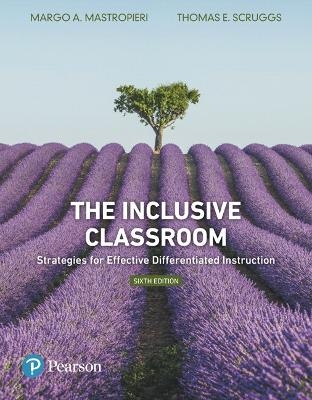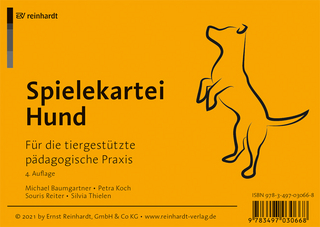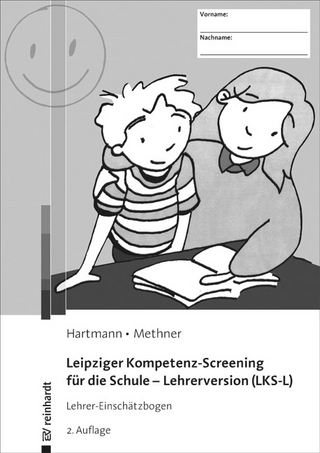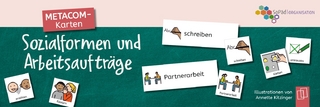
MyLab Education with Enhanced Pearson eText -- Access Card -- for The Inclusive Classroom
Pearson
978-0-13-445043-8 (ISBN)
- Keine Verlagsinformationen verfügbar
- Artikel merken
If purchasing or renting from companies other than Pearson, the access codes for the Pearson MyLab Educatin with Enhanced Pearson eText may not be included, may be incorrect, or may be previously redeemed. Check with the seller before completing your purchase.
For courses in Inclusion or Introduction to Special Education.
This access code card provides access to Pearson MyLab Education with Enhanced Pearson eText.
Research-based classroom and content strategies for the inclusive classroom.
The Inclusive Classroom: Strategies for Effective Differentiated Instruction, Sixth Edition captures the best of inclusion practices. Using a non-categorical approach, Mastropieri and Scruggs explain the fundamentals of inclusive teaching, the most effective general teaching practices, and ways to differentiate instruction for specific content areas. Targeted teaching strategies show ways to improve all students' memory, attention, motivation, study skills, and peer interaction. Research Highlights features validate strategies and demonstrate why particular techniques are best practice. Filled with classroom-ready tips and checklists, this revision includes an expanded chapter on Response to Intervention (RTI) and Multi-Tiered Systems of Support (MTSS), more coverage of the Common Core State Standards (CCSS) and Universal Design for Learning (UDL), and the latest strategies relating to academic success.
Personalize learning with Pearson MyLab Education®
Pearson MyLab Education is an online homework, tutorial, and assessment program designed to work with the text to engage students and improve results. Within its structured environment, students see key concepts demonstrated through real classroom video footage, practice what they learn, test their understanding, and receive feedback to guide their learning and ensure they master key learning outcomes.
Margo Mastropieri, Ph.D., is University Professor Emerita, College of Education and Human Development, George Mason University. She has served as a Diagnostic-Remediator for the Learning Center at Mount Holyoke College, and as a classroom teacher for students with special needs, from preschool to secondary levels, in Massachusetts and Arizona. Prior to her present position, she served as University Professor of Special Education at George Mason University. Earlier she was a Professor of Special Education at Purdue University, and as Assistant Professor of Special Education at Utah State University, where she also worked as a researcher at the Early Intervention Research Institute. She earned her Ph.D. from Arizona State University. She has co-directed federally funded research projects in mnemonic strategy instruction, inclusive science and social studies education, and writing instruction at the elementary, middle school, and high school levels, in addition to directing undergraduate and doctoral level personnel preparation grants. From 1991 to 1997 she served as Co-Editor of Learning Disabilities Research & Practice, the journal of the Division for Learning Disabilities of the Council for Exceptional Children. From 1992 to 2011 she served as Co-Editor of the research annual Advances in Learning and Behavioral Disabilities (Emerald). From 2009 to 2015 she served as Co-Editor of Exceptional Children, the research journal for the Council for Exceptional Children. Among her publications are over 200 journal articles, 67 chapters in books, and 31 co-authored or co-edited books. In 2007, she was awarded the distinguished University Professor title from George Mason University. In 2008 she was the recipient of a Teaching Excellence Award at George Mason University, In 2010, she was the recipient of the Virginia Outstanding faculty Award, which is the Commonwealth’s highest honor for faculty at Virginia’s public and private colleges and universities. Tom Scruggs is University Professor Emeritus, George Mason University. He served as a classroom teacher for students with special needs, including gifted students, from preschool to secondary levels in Massachusetts and Arizona. Prior to his present position, he served as University Professor of Special Education at George Mason University. Earlier he was a Professor of Special Education at Purdue University, where he also had served as Director of the Purdue Achievement Center; and as a Research Assistant Professor at Utah State University. He earned his Ph.D. from Arizona State University. He has directed or co-directed externally funded research projects in peer tutoring, test-taking skills, mnemonic strategy instruction, and inclusive science and social studies education, at the elementary, middle school, and high school levels. From 1991 to 1997 he served as Co-Editor of Learning Disabilities Research & Practice, the journal of the Division for Learning Disabilities of the Council for Exceptional Children. From 1992 to 2011 he served as Co-Editor of the research annual Advances in Learning and Behavioral Disabilities (Emerald). Since 2009 to 2015 he served as Co-Editor of Exceptional Children. Among his publications (mostly in collaboration with Margo Mastropieri) are over 200 journal articles, 61 chapters in books, and 32 co-authored or co-edited books. In 2010, he received the Scholarly Achievement Award from the College of Education and Human Development at George Mason University. Both authors are the recipients of the 2006 “CEC Special Education Research Award,” as well as the 2011 “Distinguished Research Award” from the American Educational Research Association: Special Education Special Interest Group for their res
PART 1 THE FUNDAMENTALS
Introduction to Inclusive Teaching 3
Collaboration: Partnerships and Procedures 25
Teaching Students with Higher-Incidence Disabilities 53
Teaching Students with Autism and Lower-Incidence Disabilities 79
Teaching Students with Other Special Learning Needs 105
PART 2 DEVELOPING EFFECTIVE TEACHING SKILLS
Effective Differentiated Instruction for All Students 125
Response to Intervention and Multi-Tiered Systems of Support 153
Improving Motivation and Social Behavior 175
Promoting Inclusion with Classroom Peers 207
Improving Attention and Memory 229
Teaching Study Skills 255
Assessment 279
PART 3 TEACHING IN THE CONTENT AREAS
Literacy 307
Mathematics 343
Science, Social Studies, and Transitions 375
PART 1 THE FUNDAMENTALS
CHAPTER 1: Introduction to Inclusive Teaching 3
LEARNING OUTCOMES 3
What Are the Educational Rights for Individuals with Disabilities? 5 The Least Restrictive Environment 6
Where Are Students with Disabilities Served? 6 Mainstreaming and Inclusion, 6 Who Is
Served Under IDEA? 7 Other Instances of Classroom Diversity, 9
Legal Foundations 9
Legal Proceedings and Legislation, 9 Section 504, 10 Americans with Disabilities Act, 11
Individuals with Disabilities Education Act (IDEA), 12 No Child Left Behind Act (NCLB) of 2001 and Every Student Succeeds Act (ESSA) of 2015, 14
Models of Service Delivery 16
The Continuum of Services, 16 Where Are Most Students with Disabilities Served? 17
What Are General Education Classroom and Consultation Services? 17 What Are Resource and Self-Contained Services? 18 Special Schools and Special Facilities, 18 What Other Related Services Are Available? 19 Full Inclusion, 19 What Does This Debate Mean for Teachers? 20 Teacher Attitudes, 21
SUMMARY 23
CHAPTER 2: Collaboration: Partnerships and Procedures 25
LEARNING OUTCOMES 25
Collaboration to Meet Students’ Needs 27
Shared Goals, 27
Effective Communication 27
Strategies for Communicating Effectively, 27
Collaboration and Communication for Intervention 30
| Erscheint lt. Verlag | 28.8.2019 |
|---|---|
| Sprache | englisch |
| Maße | 152 x 226 mm |
| Gewicht | 22 g |
| Themenwelt | Sozialwissenschaften ► Pädagogik ► Sonder-, Heil- und Förderpädagogik |
| ISBN-10 | 0-13-445043-4 / 0134450434 |
| ISBN-13 | 978-0-13-445043-8 / 9780134450438 |
| Zustand | Neuware |
| Haben Sie eine Frage zum Produkt? |
aus dem Bereich


